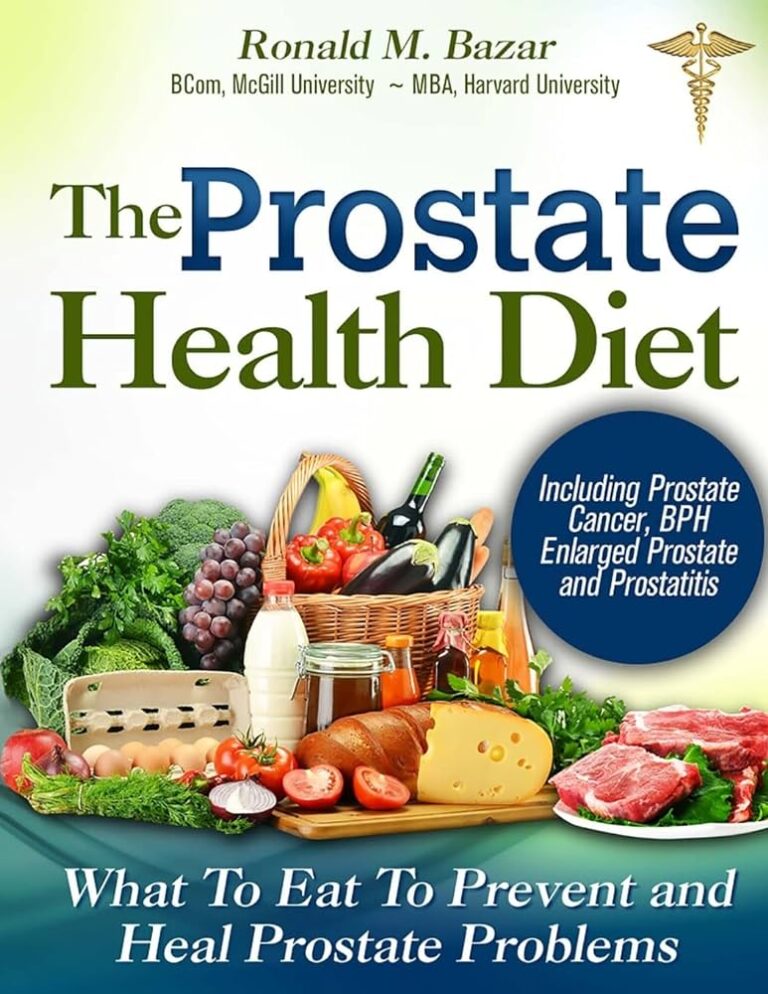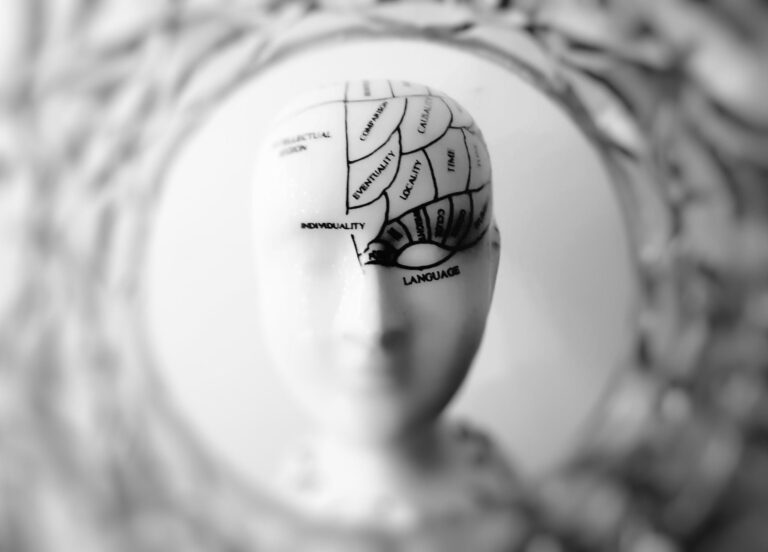The Sleep-Diet Connection: How to Eat for Better Sleep

The Importance of Quality Sleep

Sleep is often viewed as a luxury rather than a necessity, especially in our fast-paced society. However, the importance of quality sleep cannot be overstated. Good sleep is vital for our physical, mental, and emotional well-being. It plays a crucial role in maintaining a healthy immune system, regulating hormones, supporting brain function, and promoting overall cognitive health.
Research consistently shows that inadequate sleep is strongly linked to a variety of health problems, including obesity, diabetes, cardiovascular disease, and mental health issues such as anxiety and depression. Lack of sleep not only impairs our ability to concentrate and make decisions, but it also affects our mood, increasing the risk of irritability and mood swings. Furthermore, insufficient sleep has been associated with decreased productivity, accidents, and even an increased mortality rate.
In short, quality sleep is essential for optimal health and functioning. By prioritizing sleep and making it a non-negotiable part of our daily routine, we can reap the countless benefits it offers. Taking steps to improve our sleep quality is an investment in our long-term well-being that should not be underestimated.
The Impact of Diet on Sleep Quality

Many people are aware of the significant role that diet plays in overall health and well-being. However, what may not be as commonly known is that a person’s diet can also have a direct impact on the quality of their sleep. Numerous scientific studies have highlighted the relationship between diet and sleep, revealing how certain foods and nutrients can either promote or disrupt sleep patterns.
One key factor in the sleep-diet connection is the timing of meals. Research has shown that consuming heavy meals close to bedtime can lead to poor sleep quality, as the digestive process required to break down these meals may interfere with the body’s ability to relax and enter a restful state. On the other hand, skipping meals or eating very light meals can also negatively impact sleep, as hunger pangs and low blood sugar levels can cause discomfort and restlessness throughout the night.
Furthermore, the type of foods consumed can influence sleep quality. A diet that is high in processed and sugary foods has been associated with increased sleep disturbances, such as difficulty falling asleep and frequent awakenings during the night. Conversely, a diet rich in nutrient-dense foods, such as fruits, vegetables, whole grains, lean proteins, and healthy fats, has been shown to support better sleep. These foods provide the body with the necessary vitamins, minerals, and antioxidants to regulate sleep processes and promote relaxation.
In conclusion, it is evident that what you eat can impact how well you sleep. By adopting a balanced diet that prioritizes nutrient-rich foods and avoiding heavy meals close to bedtime, individuals may experience improved sleep quality and overall well-being. Further exploration into the sleep-diet connection can offer valuable insights into creating effective dietary strategies to optimize sleep.
Understanding the Sleep-Diet Connection
Research has shown that there is a strong connection between our diet and the quality of our sleep. The foods we consume can either promote or hinder a good night’s rest. Understanding this sleep-diet connection is vital if we want to optimize our sleep patterns and overall well-being.
Firstly, certain foods contain nutrients that can support better sleep. For example, foods rich in tryptophan, an amino acid that helps produce serotonin and melatonin, can promote restful sleep. Some examples of tryptophan-rich foods include turkey, nuts and seeds, and tofu. Additionally, complex carbohydrates, found in whole grains and vegetables, can aid in the production of serotonin, leading to improved sleep quality.
On the other hand, there are also foods that can disrupt our sleep. Consuming a heavy meal close to bedtime, especially one high in fat, can result in indigestion and discomfort, making it difficult to fall asleep. Similarly, foods or beverages that contain caffeine, such as coffee, tea, and chocolate, can stimulate the nervous system and interfere with sleep. It is recommended to avoid these items in the late afternoon and evening to ensure a restful night’s sleep.
Foods That Promote Good Sleep

Adequate and quality sleep is essential for overall well-being and optimal functioning. While there are various factors that influence sleep, diet plays a significant role in determining sleep quality. Certain foods, when incorporated into your diet, can promote good sleep and help you achieve a restful night’s sleep.
One such food category is fruits and vegetables that are rich in natural sleep-promoting substances. For instance, bananas are an excellent choice due to their high content of magnesium and potassium, which help relax the muscles and promote calmness. Additionally, tart cherries are a natural source of melatonin, a hormone that regulates sleep-wake cycles. Consuming tart cherry juice or whole cherries may improve sleep duration and quality.
Incorporating whole grains into your diet can also contribute to better sleep. Whole grains like barley, quinoa, and brown rice are rich in magnesium, which has been associated with improved sleep quality. Furthermore, they have a low glycemic index, meaning they are digested slowly, helping to stabilize blood sugar levels and reduce instances of waking up during the night.
Omega-3 fatty acids found in fatty fish such as salmon, mackerel, and sardines are known to have numerous health benefits, including promoting better sleep. These fatty acids are involved in the synthesis of neurotransmitters that regulate sleep. Incorporating fish into your diet a few times a week can provide these beneficial omega-3 fatty acids.
By including these sleep-promoting foods into your diet, you can create a bedtime routine that supports restful sleep. It is important to note that individual responses to food may vary, and it is always best to consult with a healthcare professional or nutritionist to personalize your diet based on your specific needs and health conditions. Remember, a balanced diet along with proper sleep hygiene can significantly contribute to your overall sleep quality and well-being.
The Role of Macronutrients in Sleep
Macronutrients, namely carbohydrates, proteins, and fats, play a vital role in maintaining overall health and well-being, including the quality of our sleep. Each macronutrient serves a unique purpose in the body, and their consumption can influence various physiological processes, such as hormone regulation and neurotransmitter production, that directly impact our sleep patterns.
Carbohydrates, often regarded as the body’s primary energy source, can affect sleep duration and quality. Research suggests that consuming complex carbohydrates, such as whole grains and vegetables, before bedtime may promote better sleep. These foods provide a steady release of glucose, helping to stabilize blood sugar levels throughout the night and prevent disturbances in sleep. However, it is best to avoid consuming high amounts of simple carbohydrates, such as sugary snacks and refined grains, close to bedtime, as they can lead to a spike in blood sugar levels and potentially disrupt sleep.
Strategies for Incorporating Sleep-Friendly Foods into Your Diet
Incorporating sleep-friendly foods into your diet can greatly contribute to improving the quality of your sleep and enhancing overall well-being. Here are some effective strategies to help you make healthier food choices that promote better sleep.
First and foremost, prioritizing whole and unprocessed foods should be at the core of your sleep-friendly diet. These include fruits, vegetables, whole grains, lean proteins, and healthy fats. Incorporating these nutrient-dense foods into your meals not only provides essential vitamins and minerals but also aids in maintaining a stable blood sugar level, which is crucial for regulating sleep hormones.
In addition, you may want to consider consuming foods that are rich in sleep-promoting nutrients. For example, having a small serving of tart cherry juice or eating tart cherries themselves has been found to significantly increase melatonin levels and improve sleep duration and quality. Similarly, incorporating foods high in magnesium, such as leafy green vegetables, nuts, and seeds, can help relax the muscles and facilitate a deeper, more restful sleep. Furthermore, adding foods that are rich in tryptophan, such as turkey, chicken, eggs, or tofu, can boost the production of serotonin and melatonin, neurotransmitters that induce relaxation and support healthy sleep patterns.
By making these strategic dietary choices, you can create a sleep-optimized diet plan that not only nourishes your body but also promotes restful and rejuvenating sleep. However, it is important to remember that individual responses to food can vary, and it may be beneficial to consult with a healthcare professional or nutritionist to develop a personalized meal plan that suits your specific needs and goals. Incorporating sleep-friendly foods into your diet is a powerful step towards improving your sleep health and overall quality of life.
The Link Between Sugar and Sleep Disruptions
Sugar consumption has long been associated with negative health effects such as obesity, diabetes, and cardiovascular disease. However, recent research has also revealed a link between sugar intake and sleep disruptions. High sugar consumption, particularly close to bedtime, can significantly impact sleep quality and duration.
One reason for this connection is the way sugar affects our hormones. When we consume sugary foods or drinks, our blood sugar levels rise rapidly, triggering the release of insulin to control glucose levels. This surge in insulin not only affects our blood sugar, but also interferes with the production and release of certain neurotransmitters and hormones that regulate sleep, such as serotonin and melatonin. As a result, our sleep-wake cycle can be disrupted, leading to difficulty falling asleep, frequent awakenings during the night, and overall poor sleep quality.
Another factor contributing to the sleep-sugar link is the tendency for high sugar consumption to exacerbate conditions such as acid reflux and sleep apnea. Both of these conditions can disrupt sleep and leave individuals feeling tired and restless the following day. Additionally, consuming sugary foods and drinks before bed can lead to indigestion and discomfort, making it more challenging to achieve restful sleep.
How Caffeine and Sleep Interact
Caffeine is a widely consumed stimulant that can have a significant impact on sleep quality.
When ingested, caffeine quickly reaches the bloodstream and acts as a central nervous system stimulant. It blocks the adenosine receptors in the brain, which would otherwise promote sleepiness and signal the body to rest. As a result, caffeine can delay the onset of sleep, reduce total sleep time, and impair sleep quality.
Research has shown that the effects of caffeine can vary depending on the individual’s sensitivity and the timing of consumption. While some people are more tolerant to caffeine and can still fall asleep despite its presence in their system, others may experience more pronounced sleep disturbances. It is important to note that the effects of caffeine can last for several hours, with a half-life ranging from three to five hours in most people. Therefore, it is advisable to limit caffeine intake in the afternoon and evening to minimize its interference with sleep.
To optimize sleep quality, it is recommended to avoid consuming caffeinated beverages or foods close to bedtime. Instead, opt for beverages such as herbal teas or warm milk, which have calming properties and can promote better sleep. By being mindful of caffeine intake and its potential effects on sleep, individuals can make informed choices to improve their sleep habits and overall well-being.
Alcohol’s Effect on Sleep Quality
Alcohol consumption is a common habit for many individuals, especially when winding down after a long day or socializing with friends. However, it is important to understand the impact that alcohol can have on the quality of our sleep. While a nightcap may initially make us feel drowsy and promote falling asleep faster, the overall effect on sleep quality may not be as beneficial as we might think.
Research has consistently shown that alcohol disrupts our natural sleep patterns and can lead to a poorer quality of sleep. One reason for this is that alcohol has sedative effects, causing us to fall into a deep sleep initially. However, as the night progresses, the sedative effect wears off, leading to more fragmented sleep. Alcohol has also been found to increase the number of times we wake up during the night, which can interrupt our REM (rapid eye movement) sleep, the stage of sleep essential for cognitive restoration and emotional regulation.
Furthermore, alcohol affects our sleep architecture, causing alterations in the duration and distribution of sleep stages. Studies have shown that alcohol reduces the amount of time spent in the restorative deep sleep stage, known as slow-wave sleep. It also suppresses REM sleep during the first half of the night, leading to a rebound effect in the second half of the night, characterized by a higher proportion of REM sleep. These disruptions in sleep architecture can leave us feeling groggy and fatigued the next day.
In conclusion, while alcohol may initially make us feel sleepy, its long-term effect on sleep quality can be detrimental. It is important to be mindful of our alcohol consumption, especially if we aim to optimize our sleep. It may be wise to moderate alcohol intake, particularly in the hours leading up to bedtime, to ensure a more restful and refreshing night’s sleep.
Here’s the information about the effects of alcohol on sleep quality and potential solutions:
| Alcohol’s Effect on Sleep Quality | Effects and Considerations | Credible Source |
|---|---|---|
| Disruption of Sleep Architecture | – Effects: Disrupts the natural progression through sleep cycles. | National Institute on Alcohol Abuse and Alcoholism – Alcohol’s Effects on Sleep |
| – Considerations: Reduces time spent in REM sleep and deep sleep stages, impacting overall sleep quality. | ||
| Fragmented Sleep Patterns | – Effects: Increases the likelihood of frequent awakenings during the night. | National Institute on Alcohol Abuse and Alcoholism – Alcohol’s Effects on Sleep |
| – Considerations: May lead to a fragmented and less restorative sleep experience. | ||
| Delayed Onset of Sleep | – Effects: Can contribute to a delay in the onset of sleep. | National Institute on Alcohol Abuse and Alcoholism – Alcohol’s Effects on Sleep |
| – Considerations: Alcohol-induced drowsiness may not translate to quality sleep, leading to later initiation of sleep. | ||
| Increased Snoring and Sleep Apnea | – Effects: Relaxes the muscles in the throat, potentially worsening snoring and sleep apnea. | American Academy of Sleep Medicine – Alcohol and Sleep |
| – Considerations: Individuals with sleep apnea may experience more severe disruptions when consuming alcohol. | ||
| Potential for Night Sweats | – Effects: May contribute to increased body temperature and night sweats. | Sleep Foundation – How Alcohol Affects Sleep |
| – Considerations: Alcohol’s impact on body temperature regulation can interfere with thermal comfort during sleep. | ||
| Dehydration | – Effects: Acts as a diuretic, increasing the likelihood of dehydration during the night. | National Sleep Foundation – How Alcohol Affects Sleep |
| – Considerations: Dehydration can lead to discomfort and disrupt sleep continuity. Stay hydrated with water alongside alcohol consumption. | ||
| Possible Solutions for Better Sleep | – Limit Alcohol Consumption: Moderation is key; avoid excessive alcohol intake, especially close to bedtime. | Sleep Foundation – Alcohol and Sleep |
| – Establish a Cut-off Time: Avoid alcohol in the hours leading up to bedtime to allow the body to metabolize it before sleep. | ||
| – Hydrate Adequately: Drink water alongside alcoholic beverages to counteract potential dehydration. | ||
| – Create a Sleep-Conducive Environment: Optimize your sleep environment with a comfortable mattress, pillows, and a cool, dark room. | National Sleep Foundation – How Alcohol Affects Sleep |
The Connection Between Hydration and Sleep
Staying properly hydrated is not only essential for optimal physical health, but it also plays a crucial role in maintaining a good night’s sleep. Dehydration can have a negative impact on various bodily functions, including sleep. When the body is dehydrated, it can trigger disturbances in our sleep patterns, making it harder to fall asleep and stay asleep throughout the night. Studies have found that even mild dehydration can lead to increased wakefulness during the night and a reduction in the overall quality of sleep. Therefore, ensuring adequate hydration is a vital component of promoting healthy and restorative sleep.
The exact mechanisms through which hydration affects sleep are still being studied, but there are a few theories that experts have put forward. One hypothesis suggests that dehydration may activate the body’s stress response, leading to the release of stress hormones such as cortisol. Elevated levels of cortisol can interfere with our ability to relax and fall asleep. Additionally, dehydration can also affect the production and regulation of certain hormones involved in sleep-wake cycles, such as melatonin. Proper hydration, on the other hand, helps to maintain a balanced hormone production and promotes a more harmonious sleep-wake cycle. To optimize sleep quality, it is important to prioritize adequate hydration throughout the day and especially in the hours leading up to bedtime.
The Role of Melatonin in Regulating Sleep
Melatonin is a hormone produced by the pineal gland in the brain that plays a crucial role in regulating sleep. It is often referred to as the “sleep hormone” due to its ability to promote and regulate sleep-wake cycles. The release of melatonin is influenced by the body’s circadian rhythm, which is essentially an internal clock that helps regulate various physiological processes throughout the day.
In the evening, as darkness sets in, the body’s production of melatonin increases, signaling to the brain that it is time to wind down and prepare for sleep. This increase in melatonin levels helps to promote sleepiness and facilitate the transition into a restful sleep. Conversely, in the morning and during periods of exposure to bright light, melatonin production decreases, allowing us to feel more awake and alert.
Research has shown that melatonin also plays a role in other aspects of sleep, such as sleep quality and duration. Individuals with low melatonin levels may experience difficulties falling asleep, staying asleep, or achieving restorative sleep. This can lead to daytime sleepiness, fatigue, and a variety of other sleep disturbances.
Other Sleep-Promoting Nutrients and Supplements
Certain nutrients and supplements have been found to promote better sleep and help individuals achieve a more restful night. Magnesium, for example, is a mineral that plays a critical role in promoting sleep. Studies have shown that magnesium deficiency is linked to insomnia and poor sleep quality. Including magnesium-rich foods in your diet, such as green leafy vegetables, nuts, and seeds, may help improve sleep patterns. Additionally, taking a magnesium supplement before bed has been found to enhance sleep quality, especially for those with magnesium deficiencies.
Another sleep-promoting nutrient is zinc. Zinc is involved in the regulation of our sleep-wake cycles and has been shown to have a positive impact on sleep quality. Foods rich in zinc include oysters, poultry, beans, and fortified breakfast cereals. However, it’s important to note that excessive zinc intake can be harmful, so it’s advisable to obtain this nutrient through a balanced diet rather than relying solely on supplements. As with any dietary changes or the inclusion of supplements, it is always recommended to consult with a healthcare professional to ensure the appropriate dosage and suitability for individual needs.
Creating a Sleep-Optimized Diet Plan
To create a sleep-optimized diet plan, it is essential to focus on the types of foods and nutrients that promote good sleep. Incorporating sleep-friendly foods into your daily meals can have a positive impact on your sleep quality. One important factor to consider is the role of macronutrients in sleep regulation.
Protein, for example, can help increase the production of serotonin and melatonin, two hormones that play a crucial role in sleep regulation. Incorporating good sources of protein, such as lean meats, poultry, fish, eggs, and plant-based proteins like legumes and tofu, can be beneficial for optimizing sleep. Additionally, complex carbohydrates, including whole grains, fruits, and vegetables, can help in the production of serotonin, promoting a sense of calm and relaxation before bedtime.
In addition to macronutrients, certain foods contain specific sleep-promoting compounds. For instance, kiwi is rich in antioxidants and serotonin, making it a great bedtime snack. Tart cherries are a natural source of melatonin, which can help regulate sleep-wake cycles. Incorporating these foods into your diet can positively influence your sleep quality.
It is important to note that creating a sleep-optimized diet plan is unique to each person. Factors such as individual nutrient needs, dietary restrictions, and personal preferences should be taken into consideration. Consulting with a healthcare professional or registered dietitian can help tailor a diet plan specific to your sleep needs while ensuring overall nutritional adequacy. By making smart food choices and nourishing your body with sleep-supportive nutrients, you can enhance the quality of your sleep and overall well-being.
Why is quality sleep important?
Quality sleep is important for overall health and well-being. It helps to restore and repair the body, promotes brain function, improves mood, boosts immune function, and enhances concentration and productivity.
How does diet impact sleep quality?
Diet plays a significant role in sleep quality. Certain foods can promote better sleep, while others can disrupt sleep patterns. By following a sleep-optimized diet plan, you can improve both the quality and duration of your sleep.
How are sleep and diet connected?
Sleep and diet are interconnected through various mechanisms. Certain nutrients and foods can affect sleep quality, while sleep deprivation can alter appetite-regulating hormones and lead to unhealthy food choices. A balanced diet can positively impact sleep, and quality sleep can support a healthy diet.
What are some foods that promote good sleep?
Some foods that promote good sleep include tart cherry juice, kiwi, almonds, turkey, fatty fish like salmon, whole grains, bananas, and herbal teas like chamomile.
What role do macronutrients play in sleep?
Macronutrients, such as carbohydrates, proteins, and fats, play a role in sleep regulation. Consuming a balanced combination of these macronutrients can help promote better sleep quality.
How can I incorporate sleep-friendly foods into my diet?
You can incorporate sleep-friendly foods into your diet by incorporating fruits, vegetables, whole grains, lean proteins, and healthy fats. Try incorporating these foods in meals and snacks throughout the day to support quality sleep.
What is the connection between sugar and sleep disruptions?
Consuming high amounts of sugar, especially close to bedtime, can lead to sleep disruptions. It can cause energy crashes, fluctuations in blood sugar levels, and difficulty falling asleep or staying asleep throughout the night.
How does caffeine affect sleep?
Caffeine is a stimulant that can interfere with sleep. It blocks sleep-inducing chemicals in the brain and can make it more difficult to fall asleep or stay asleep. It is best to limit or avoid caffeine intake, especially in the evening.
What effect does alcohol have on sleep quality?
Although alcohol may initially make you feel drowsy, it can disrupt the sleep cycle and lead to poor-quality sleep. It can fragment sleep, reduce rapid eye movement (REM) sleep, and increase the likelihood of snoring or sleep apnea.
What is the connection between hydration and sleep?
Proper hydration is essential for good sleep. Dehydration can lead to sleep disturbances, such as increased wakefulness during the night, snoring, and dry mouth. It is important to stay adequately hydrated throughout the day.
How does melatonin regulate sleep?
Melatonin is a hormone that helps regulate the sleep-wake cycle. It is produced naturally by the body, but can also be taken as a supplement. Melatonin levels increase in the evening, signaling to the body that it is time to sleep.
Are there any other nutrients or supplements that promote sleep?
Yes, other nutrients and supplements that promote sleep include magnesium, vitamin B6, calcium, valerian root, lavender, and chamomile. These can help relax the body and promote better sleep quality.
How can I create a sleep-optimized diet plan?
To create a sleep-optimized diet plan, focus on incorporating sleep-friendly foods, avoiding foods and drinks that disrupt sleep, maintaining a balanced intake of macronutrients, staying hydrated, and considering the use of sleep-promoting nutrients or supplements. Consult with a healthcare professional or registered dietitian for personalized guidance.






